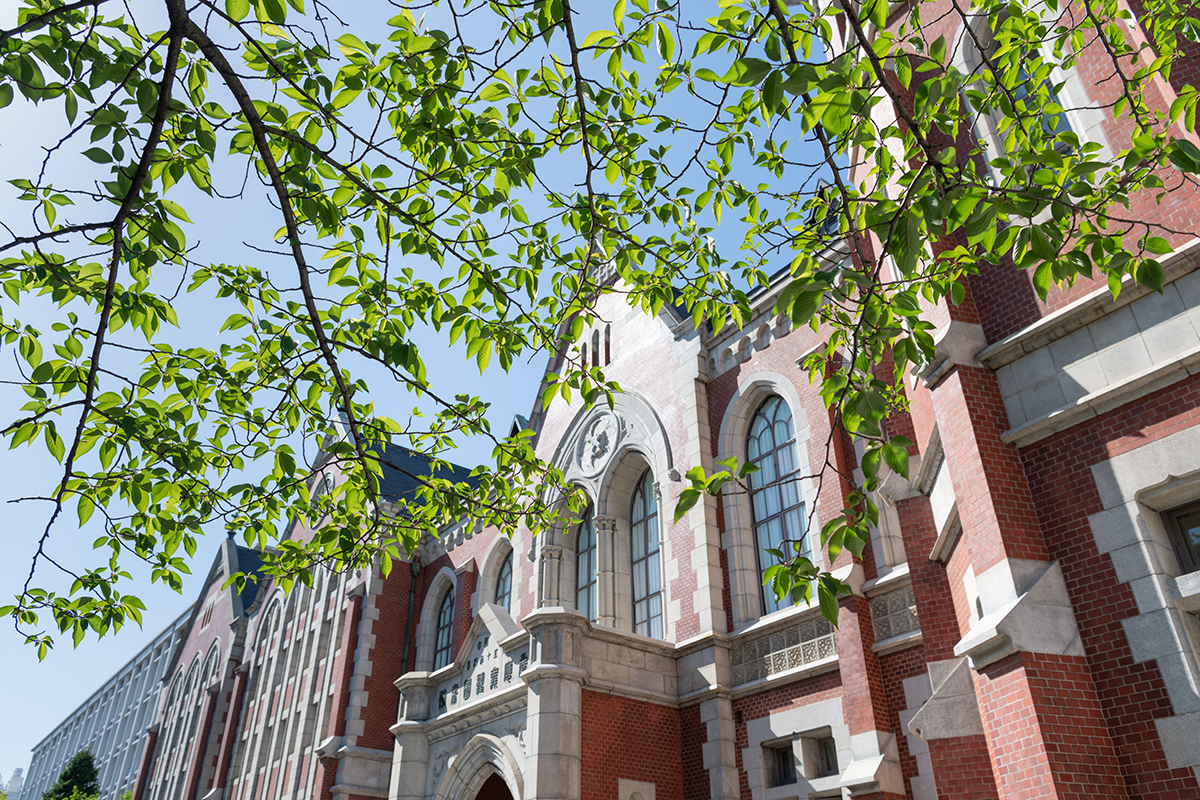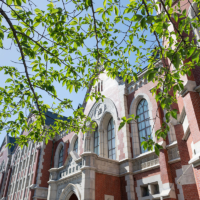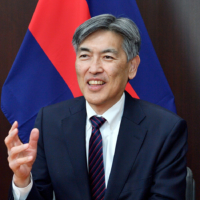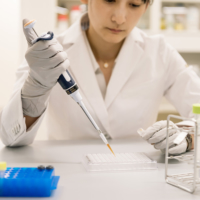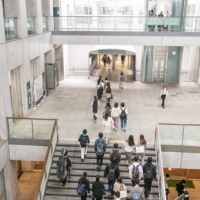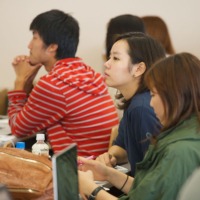Keio University is harnessing its legacy of independence and academic excellence to create platforms for organic collaboration and transformative research initiatives. From inclusive sustainability projects and insightful discussions with world leaders to new cutting-edge research centers, Keio provides a wide range of opportunities for students and researchers to address society’s most pressing issues.
Across its 10 undergraduate faculties and 14 graduate schools, Keio promotes its founding spirit of jitsugaku, or empirical science, through creative educational and research activities that promote critical thinking. The university groups these activities under three transdisciplinary initiatives: longevity, security and creativity. Guided by these core principles, Keio’s global initiatives contribute to a sustainable, secure and creative world where people can live better, longer lives.
Goal of sustainability
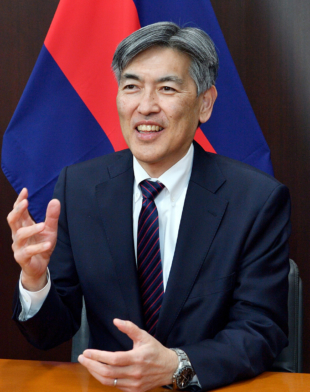
Sustainability is a major theme of Keio’s education and research. In February, Csaba Korosi, president of the 77th session of the United Nations General Assembly, was invited to a seminar at Keio focused on promoting the global body’s sustainable development goals. Korosi, who was involved in the formulation of the SDGs in 2015, spoke with students and stressed the urgency with which the U.N. was acting to transform society. Keio University President Kohei Itoh echoed Korosi’s sentiments, saying, “Improvement alone doesn’t help anymore; we need to transform our way of living and update rules so that we can meet the SDG targets by 2030.”
Centered on the theme of sustainability, the Keio Student Conference in 2022 assembled students from across the university’s affiliates — elementary, junior high and high schools in Japan and the Keio Academy of New York — to think about how Keio can contribute to achieving the 17 SDGs. The university students formed groups with younger students to create proposals they later submitted to the president’s office for review.
“The conference led to some really interesting discussions,” Itoh said. “Undergraduate students had to formulate their proposals while listening to the opinions, ideas and aspirations of elementary and high school students. This challenged the undergraduate students to create realistic proposals that reflect the idealism of younger generations.”
One aspiration that came out of this conference was a goal to eliminate all food waste on campus. While acknowledging this was not immediately feasible, Itoh believes Keio can leverage its strength in quantum computing research driven by artificial intelligence to fine-tune a cafeteria selection that mitigates waste. Other pragmatic proposals included the introduction of a rule to ensure that all of the fish served at the cafeteria has environmental certification. “Right now, we are preparing our response to these proposals,” Itoh said. “Upon giving feedback we will work closely with students as part of working groups to try to achieve some of the targets they have put forth.”
Independence, self-respect
Like with the Keio Student Conference, Keio’s initiatives embody the ideals of founder Yukichi Fukuzawa, who stressed the importance of independence and self-respect. Rather than top-down projects, Keio’s initiatives focus on establishing foundations for collaborative, bottom-up platforms conducive to fruitful education and research activities.
In the realm of social sciences, Keio’s emphasis on organic collaboration has led to the upcoming establishment of the Keio Center for Strategy. “This center is not an initiative from Keio headquarters; it is a grassroots initiative organized by faculty,” Itoh explained. “The nice thing about Keio is that around 70% of the university consists of the social sciences and humanities, and as such, our faculty body allows us to accommodate all sorts of different opinions.”
As a preliminary event for the new research institute, a faculty member associated with the Keio Center for Strategy invited Jens Stoltenberg, the secretary-general of NATO, to speak at a seminar about national security and the relationship between NATO and Japan. The seminar was attended by around 100 students, who were given time to freely ask important and incisive questions.
“The purpose of this seminar was to give students a chance to speak with the secretary-general,” Itoh said. “The secretary-general came to Japan to ask for support for NATO activities in Europe. He also stated that what is happening in Europe can also happen in Asia — specifically referring to the situation surrounding Taiwan.” Students raised many important points to Stoltenberg, questioning the rationale behind NATO’s plea for Japan to support its activities in Europe. “Of course, we want to help our friends in Taiwan, but, at the same time, Japan doesn’t recognize Taiwan as a legitimate country; there is no official diplomacy. These were just some of the points students brought up in their fruitful and stimulating dialogue with Stoltenberg, who gave sincere answers to all the questions raised,” Itoh said.
The seminar also shined light on the importance of dialogue in achieving sustainable world peace by diplomatic means. Recognizing these values, Keio University joined the U7+ Alliance of World Universities shortly after the alliance was formed in 2019. Spearheaded by French President Emmanuel Macron, the alliance consists of university presidents who engage in concrete actions to promote a global multilateral agenda centered on students. “We want to promote an agenda that is centered on younger generations, because they are our future,” Itoh explained. “The agenda covers a wide range of topics pertinent to the future of society, including diversity and inclusion; democracy; and human, national and Earth security.”
Through discussions with other presidents in the U7+ Alliance, Itoh has noticed small differences that distinguish Keio. “Though we have accomplished professors in the field of medicine, 70% of Keio comprises the social sciences and humanities,” Itoh noted. “Overall, we are prolific in a way that complements other alliance universities. We are able to leverage our strengths in the social sciences and humanities to work with other universities whose focus is mainly in medicine and natural sciences.”
A central theme throughout Keio’s recent initiatives is the emphasis on interdisciplinary collaboration. No better can this philosophy be seen than in the establishment of the Human Biology-Microbiome-Quantum Research Center, which was selected by the education ministry to be part of the World Premier International Research Center Initiative. The center will utilize both quantum computing and conventional bioanalytical methods to clarify the mysteries of the microbiome’s relationship with humans at the molecular level, paving the way for the development of new medications and therapies.
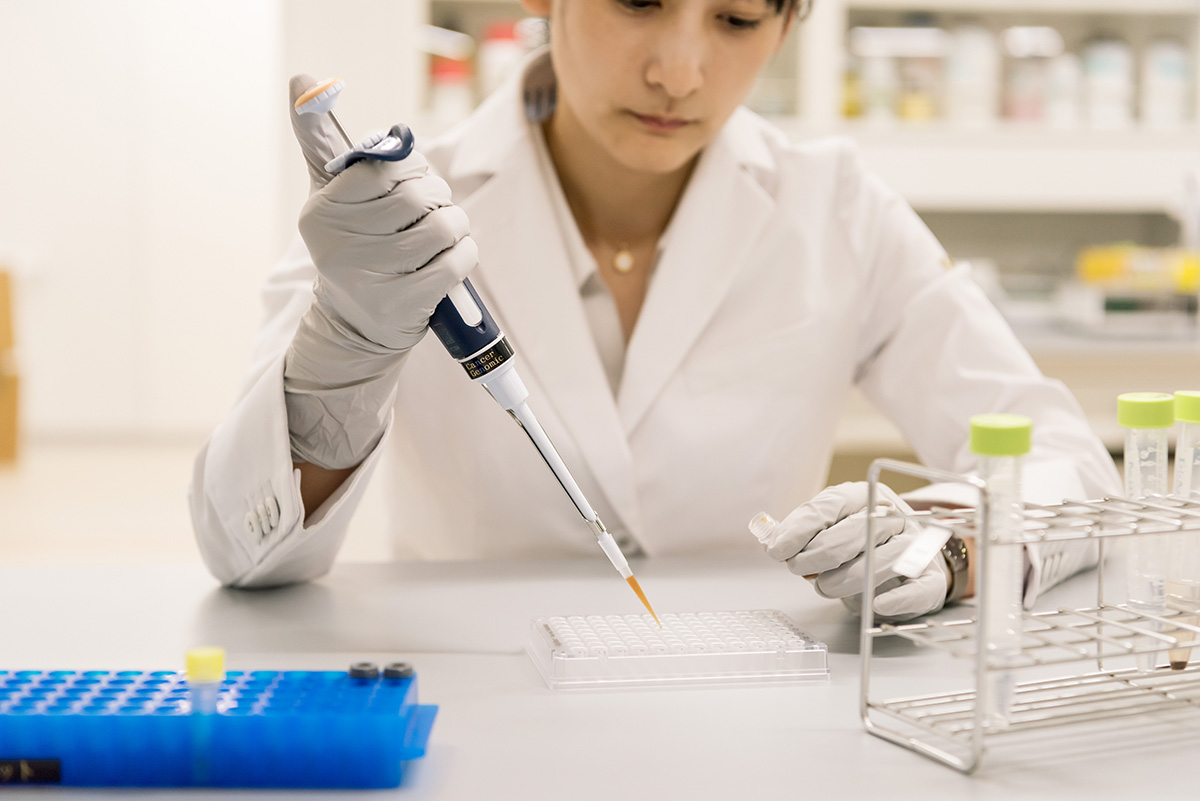
“There is so much biological data, that in order to make new findings, researchers rely on mathematical models as well as computational power,” Itoh said. “The center will be working closely with our science and engineering experts to explore how to use AI and quantum computing in this process. Our Quantum Computing Center is one of the world’s leading quantum computing centers, so we are excited to leverage their successes and incorporate them into this discovery science.”
The integrated approach of the microbiome research center reflects Keio’s philosophy of organic collaboration. “We want all groups within Keio to be able to have discussions freely for the betterment of society,” Itoh explained. “Being able to meet and discuss with a wide spectrum of people with different opinions is extremely important for a university to become a true platform of knowledge.”
Diverse courses aim to build international mindset
Keio University is a prestigious Japanese university renowned for its international environment and history of academic excellence. Established in 1858 by educator Yukichi Fukuzawa, Keio is one of Japan’s first private institutions of higher learning. Fukuzawa emphasized the importance of honor and intellect in the pursuit of academic learning, and Keio honors this legacy by utilizing its strengths as a comprehensive university to promote multidisciplinary research based on the values of longevity, security and creativity.
The university is home to a diverse student body, including a large number of international students, many of whom are enrolled in one of the university’s 23 English-language undergraduate and graduate programs. Based on Keio’s founding philosophy of jitsugaku, or empirical science, these programs offer creative and distinctive educational and research activities that equip students with the international mindset needed to contribute to solutions for both domestic and global challenges.
Keio’s flagship English-language undergraduate programs include PEARL, or the Programme in Economics for Alliances, Research and Leadership. PEARL is grounded in the principle that economics is more than the study of the economy; it is a discipline that imparts the values of independent thinking, good governance and strong leadership. The establishment of Keio’s Faculty of Economics in 1890 marked the beginning of the formal study of economics in Japan, and PEARL draws from this rich legacy to provide a curriculum that enables students to critically address global socioeconomic issues from a broad perspective.

PEARL offers undergraduates a world-class education in liberal arts and advanced economics over the course of four years, the first two of which are spent at Hiyoshi Campus, Keio’s largest campus located between Tokyo and Yokohama, where students obtain the foundation necessary to pursue their individual paths of study. The students spend the next two years at Mita Campus, Keio’s oldest campus in the heart of Tokyo, where they pursue in-depth economic study across many categories, including economic theory, economic history and international economics, among others. By the time they complete PEARL, students are equipped with the firm intellectual foundation needed to pursue a meaningful career in the global economy.
Other English-language undergraduate programs include the Global Information and Governance Academic Program. This program integrates information and communication technology and governance, training students to identify and resolve complex issues in an era of rapid progress. The program encompasses various fields, from policy design and social innovation to advanced biosciences and environmental design, all of which can be explored through a flexible curriculum available in English.
The four-year GIGA Program is offered at Keio’s Shonan Fujisawa Campus in Kanagawa Prefecture. Surrounded by a rich natural environment, the campus opened in 1990 based on an entirely new concept: a future-oriented campus in balance with cutting-edge technology and nature. In addition to fundamental courses designed for students to acquire methods of thought and academic techniques, the GIGA Program offers courses on data science, where students will study statistical data analysis, modeling and simulation, as well as advanced mathematics. The program also emphasizes communication in foreign languages, offering courses in Malay-Indonesian, Arabic, Korean, Spanish, German and French.
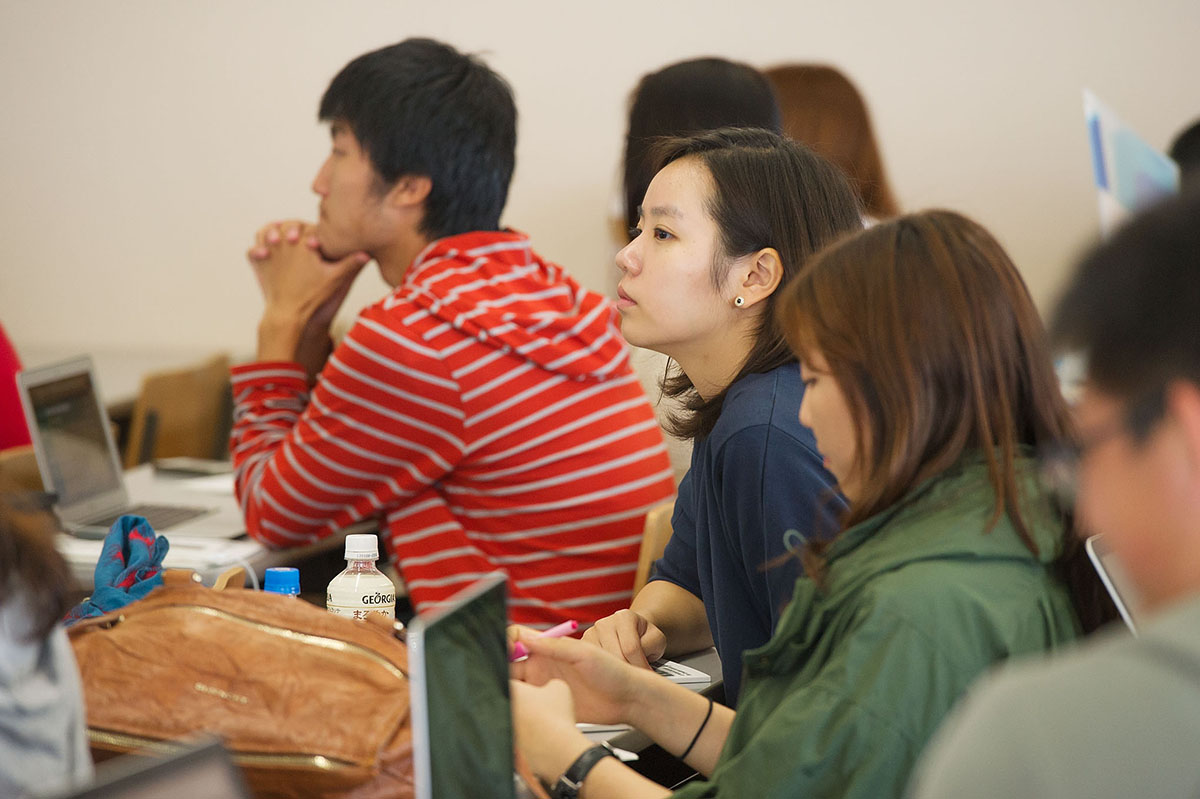
In addition to its undergraduate programs, Keio offers a large selection of English-language programs across its graduate schools, covering the fields of economics, law, business, medicine and engineering, among others. The graduate schools’ English-language offerings include a one-year Master of Laws program at the Law School; doctorate programs at the Graduate School of Medicine, Graduate School of Science and Technology, and Graduate School of Economics, among others; as well as master’s programs at the Graduate School of Media and Governance and Graduate School of Business and Commerce.
In terms of research, Keio continues to be a leading academic force. Last year, Keio joined a small group of research institutes when it was selected by the Ministry of Education, Culture, Sports and Technology to be part of the World Premier International Research Center Initiative (WPI) — a government program launched in 2007 to promote globally visible research centers with uncompromising standards and outstanding environments.
Keio’s selection under the WPI launched the university’s Human Biology-Microbiome-Quantum Research Center, also referred to as Bio2Q (https://bio2q.keio.ac.jp/). It is the first microbiome research center in Japan and works with the world’s top scientists to leverage Keio’s research expertise in quantum computing to use both quantum computing and conventional bioanalytical methods to establish a new molecular understanding of the complex interactions between the microbiome and humans. The center hopes to utilize its research advancements to find solutions for difficult-to-treat illnesses.
Bio2Q is led by professor Kenya Honda, who currently serves as director of the center. Honda has made seminal contributions to our understanding of the role of the microbiome in inflammatory diseases and cancer. He has also innovated microbiome analysis through the integration of germ-free animal models, anaerobic bacterial culture and metagenomic studies. The center will collect data on the interactions between multiple organs and the microbiome, utilizing artificial intelligence and quantum computing to develop a new interdisciplinary research area that explains the regulatory mechanisms that sustain human health.
In February, Bio2Q held its first symposium at Keio’s Shinanomachi Campus. Researchers shared their work with their colleagues inside and outside the center and discussed possible future avenues in science. The symposium had 200 attendees, including more than 40 from the Philippines, the U.K. and the United States. These presentations highlighted the exciting potential of integrating human biology, microflora and quantum computing to contribute to scientific development that helps achieve the goal of good health and longevity for all.
The new microbiome research center embodies Keio’s three interdisciplinary initiatives: longevity, security and creativity. By creating opportunities to strengthen collaborative ties with the world through joint research and academic exchange, Keio is harnessing its education and research to contribute to a sustainable, secure and creative world where people live fulfilling, longer lives.
This page is sponsored by Keio University.
Keio University

Address: 2-15-45 Mita, Minato-ku, Tokyo 108-8345, Japan
Tel: +81 (0)3-5427-1541
E-mail: [email protected]
URL: https://www.keio.ac.jp/en/



